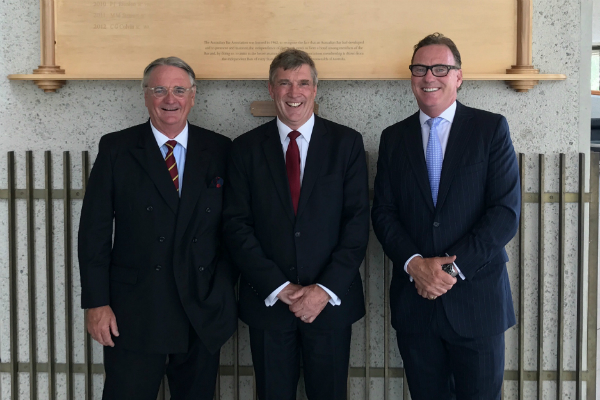‘Circuit-breaker’ needed for access to justice impasse
The dire need for extra funding for the courts and access to justice is a sticking point for the president of the Australian Bar Association, who says it is time for a new approach.

The new president of the Australian Bar Association (ABA), Will Alstergren QC, has earmarked a comprehensive review into how funding is allocated to the nation’s courts and community legal aid.
“There’s an appetite now to try and assist, and not just from the legal fraternity. Everything is on the table,” Mr Alstergren said.
Spurred by an impasse between legal stakeholders and the government over claims that groups such as community legal services face a funding cliff under present government funding arrangements, Mr Alstergren said it is time for the face-off to finish.
“The difficulty is that there is a lack of funding, a recognition that there is a lack of funds and a government response being that because there is a limited amount of funds, [access to justice] can’t be made [more of] a priority than it already is. We need a circuit-breaker,” Mr Alstergren said.
“Unless there is a breakthrough of goodwill or a breakthrough of compassion, the situation is not going to change dramatically,” he said.
Last year the federal government released its official response to a landmark Productivity Commission Access to Justice Arrangements report. In response to 16 of the report’s 83 recommendations, the Commonwealth made a number of funding commitments, including $1.6 billion for legal aid commissions and community legal centres through the National Partnership Agreement.
Mr Alstergren said the ABA intends to explore the viability of more creative funding solutions in a climate that deals with the fiscal realities constraining the state and federal governments.
The alternative funding arrangements being considered by the group include a legal foundation based on an English model, and the idea floated last year of a tax on the gambling and alcohol industries.
“The great thing about the ABA is that we’ve got some of the best legal minds in Australia, and particularly in relation to things like criminal cases,” Mr Alstergren said.
“At the same time, we’ll be relying upon and consulting with stakeholders in the area.”
The ABA president’s call for pragmatism, however, does not excuse respective governments of their financial obligations to justice. He said he wants change that is both sustainable and can facilitate the state better meeting its funding priorities.
“We should be finding alternate sources of funds and asking the government to match it dollar for dollar. We’ve got to turn the debate around a little bit,” Mr Alstergren said.
Mr Alstergren officially took the reins of the ABA from 2016 president Patrick O’Sullivan QC yesterday.
“I hope to continue Patrick O’Sullivan’s great work to further promote the availability and quality of Australian barristers, and to act as respected voice of reason and advocate for the wider community,” he said.
The ABA will also focus this year on promoting the value of independent counsel in modern litigation.

L-R: ABA Vice President Christopher Hughes with Immediate Past President Patrick O’Sullivan QC and Will Alstergren QC